GST
Audit
At NKG, we understand that navigating the complex business landscape can be daunting, which is why our seasoned advisors are dedicated to providing comprehensive and tailored advisory services to propel your organization forward.

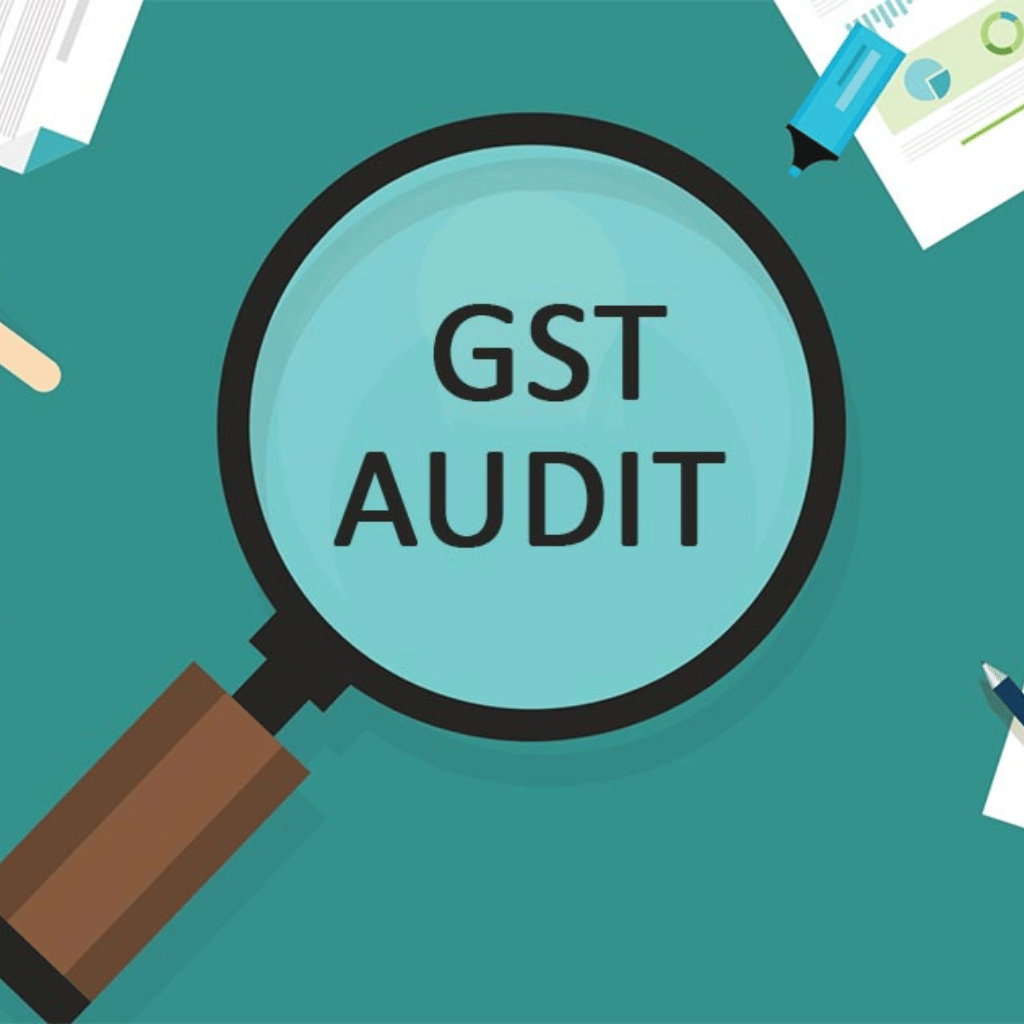
At NKG, we understand that navigating the complex business landscape can be daunting, which is why our seasoned advisors are dedicated to providing comprehensive and tailored advisory services to propel your organization forward.


A statutory audit is a legally required review of the annual financial statements of a company to verify if they represent a true and fair view of its financial position. It is carried out by an independent, external auditor appointed by the shareholders.
Most countries have legislation mandating certain companies to compulsorily undertake annual statutory auditing. The objective is to enhance credibility, transparency and compliance in financial reporting across businesses beyond a certain scale or type.
As per Section 35(5) of CGST Act, entities with GST registration must get annual GST audit conducted by an authorized auditor if their aggregate annual turnover exceeds prescribed threshold limit which is currently:
Two types of GST audits exist namely:
Only a Chartered Accountant or Cost Accountant meeting prescribed eligibility criteria can act as authorized GST Auditor to conduct the GST audit:
Additionally, owner or employee of the company with minimum prescribed qualifications and experience can be appointed internal auditor for GST Audit under supervision of a CA/CMA.
The registered person audited must be informed at least 15 days in advance about the audit. The key steps in the GST audit process comprise:
During GST audit, taxpayers should:
And they have the right to:
If post audit, a registered person does not pay additional tax with interest and penalty demanded or is found attempting to evade tax through fraudulent actions like fake invoices, action can be taken as per GST law including:
Some vital facets the GST auditor examines and verifies include:
Feel free to reach out if you have any questions or require further assistance.
Call NowGST audit by independent auditors ensures businesses stay legally compliant, self-aware and ready to tide complex audits fearlessly. Taxpayers should seen audit not as an accusation but as a tool to plug inadvertent gaps early. A clean audit that withstands scrutiny builds stakeholder trust and reputation too. Coupled with sound account keeping and internal checks, it enables financial vigilance.

NKG keeps in Close communications with various Trade Commissions, Business Chambers, embassies of many countries on various existing & new Rules & Regulations of government of India




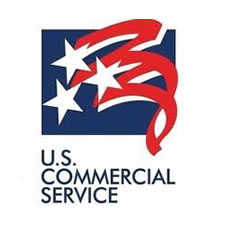
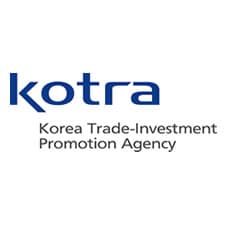





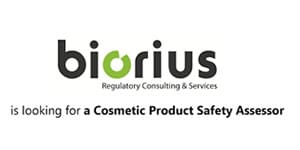



NKG has a Dedicated and Efficient team of experienced regulatory professionals who have Registered more than 2000 brands until now who can help you Plan your regulatory needs and smoothen the process for Regulatory approvals. Strategically located in New Delhi, the “regulatory “ capital of India, NKG makes a head start by following its unique time tested “Step-by- Step “ process that puts a lot of method in between the madness.

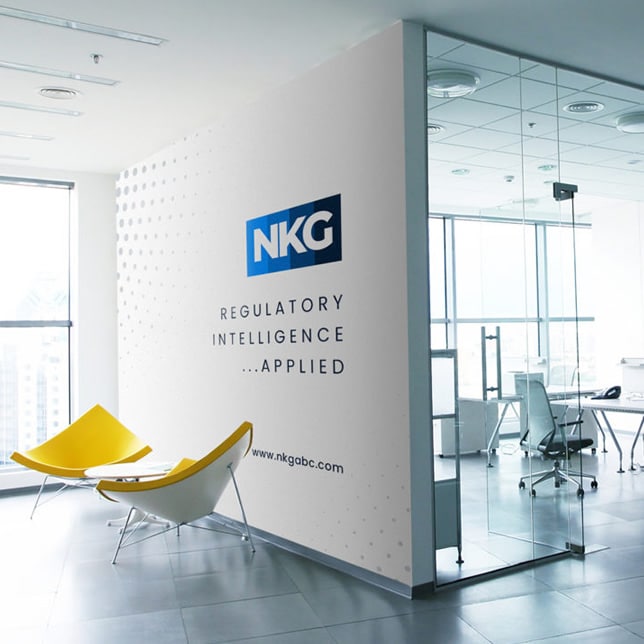
Through years of experience, NKG experts have ironed out an efficient, step by step process starting from the basics of understanding a client’s requirements through to providing an exhaustive overview of the regulatory obligations concerning the products. Once a regulatory pathway is identified, NKG experts handhold the client through each step of the process concluding to receipt of licenses and approvals.
As per Section 3(aaa) of Drugs and Cosmetics Act, 1940 “Cosmetic” means “any article intended to be rubbed, poured, sprinkled or sprayed on, or introduced into, or otherwise applied to, the human body or any part thereof for cleansing, beautifying, promoting attractiveness, or altering the appearance and includes any article intended for use as a component of cosmetic.” Form 43 is required for registration of imported cosmetics. Therefore, as per definition of cosmetics , Form 43 is not applicable for pet or animal shampoos.
For cosmetic products, strict enforcement of compliance to various provisions of labelling is rountily being done during the processing of regulatory dossiers before grant of approval, at Indian Customs during the customs clearance priocedures and in the online – offline marketplaces by the CDSCO enforcement teams. Use this link to get detailed answer on labelling guidelines as per Drugs & Cosmetics Act for cosmetics.
Preparing regulatory documents is a time consuming and costly affair. It requires close and clear communication with external stakeholders such as overseas regulatory teams and attestation agencies across the world. Power of Attorney is a non-negotiable document required during the cosmetic registration process. As explained in our blog (attach link here), Power of Attorney has to be attested before submission to the CDSCO India. Attestation of POA can take anywhere between 2 to 4 weeks. NKG provides attestation of this document locally in India at a competitive cost and very efficient timeline of a few days. By delegating the attestation of POA in India to NKG, overseas brands and Indian Importers reduce the burden on the regulatory team overseas as well as save a lot of time by attesting in India.
As per the checklist of documents issued by CDSCO, POA attested by a First Class Magistrate is acceptable to CDSCO for processing of application and grant of approval. NKG provides assistance in getting the Power of Attorney attested by First Class Magistrate in India to its clients as and when required.
Imported cosmetics can be imported in India in two bread ways. Case one is where import of cosmetics is for a Brand owned by an Overseas Brand Holder/Manufacturer. Case two is one the Brand Holder is a company incorporated in India and such a company is getting its cosmetics products manufactured in an overseas location and importing such a cosmetic product in India. In case one, POA document is used as authoirsation given by an overseas brand holder to an Indian Importer to register the products with CDSCO on behalf of the overseas brand holder. In case two, instead of POA, the document LOA is used where the the Indian Entity owning the brand authorises an overseas manufacturer to manufacture the product in their country on its behalf.
Yes, as per clause 2(a) of Schedule D (III) of Drugs and Cosmetics Rules, 1945,
name(s) of ingredients in the nomenclature of standard references, along with percentage contained in the cosmetics is required to be submitted.
No, Cosmetic and Drug are defined separately under Section 3 in Drugs and Cosmetics
Act, 1940. Products having drug claim do not come under the definition of cosmetic as per the Act and therefore cannot be considered for registration as cosmetic.
Cosmetics Imported into India are regulated under Drugs & Cosmetics Act 1940 by CDSCO New Delhi, India under the Directorate General of Health Services,Ministry of Health & Family Welfare,Government of India. CDSCO is the National Regulatory Authority (NRA) of India.
An Application for registration of import of cosmetics is submitted in Form 42. COnsequently, if after processing of application , the licensing authority is satisfied with the regulatory dossier submitted in Form 42, then licensing authority may grant approval of such an application in Form 43
From April 2013 till December 2018, the government fee for cosmetic registration was USD 250 or equivalent Indian Rupees per category of products.
However, Vide Notification No.GSR 1193(E)dated 12th December 2018, the Indian Government has notified the increase in the fees as enclosed.
Variants are those variations in products like colors, shades, flavours, fragrances or other inherent characteristics apart from the base formulation only. Different sizes of products need registration but are not considered as variant for the purpose of payment of government variant fee.
If a unit pack (Kit, Palettes etc.) containing different colors, shades, flavours,
fragrances or other inherent characteristics apart from the base formulation which is sold as a single unit pack in retail, then it will be considered as a single variant.
A “Fresh application” for registration of imported cosmetics in Form 42 has to be made in case when the brand is being registered by an Importing Entity for the first time.
An “Endorsement Application” in Form 42 is submitted when an applicant has already been granted a “Fresh Registration Certificate in Form 43. Endorsement application could be for new products, variants, sizes or manufacturing sites.
Renewal Application: A “Fresh“ registration certificate and all corresponding “Endorsement” Certificates under such a registration certificate are valid for a period 3 years from the date of issuance of such “Fresh “ Registration certificate unless suspended or cancelled.In order to keep continuing imports under a valid registration certificate issued by CDSCO, an overseas brand holder and importer need to submit an application for re-registration or renewal of such registration certificate well in time. If license is not renewed before the date of expiration, then it stands cancelled.
Yes, as per Rule 129 D, Validity of Registration certificate in Form 43 is 3 Years from the issue date.
Yes,Free sale certificate for all variants needs to be submitted.
No.Cosmetic products which are imported into India as bulk for repackaging for 100% export to other countries will not require registration certificate. In such cases the importer has to obtain necessary permission from CDSCO HQ. Importer must give written undertaking that these products are not released for domestic sale.
No.For Import of cosmetics for R&D purposes like packaging trials, consumer studies, shelf life studies and transport studies, registration certificate is not required. In such cases the importer has to obtain necessary permission from CDSCO HQ. Importer must give written undertaking that these products are not released for domestic
No.Cosmetics Manufactured in India are regulated by State Licensing Authorities (SLA) across all States/UT of India respectively. Under the Drugs & Cosmetics Act 1940, Licenses and registrations regarding manufacturing of Cosmetics, Renewal of manufacturing licenses of cosmetic products have been granted by the Respective SLAs since decades.
State Licensing Authority or SLA of each State/UT respectively.
Various subjective declarations such as Information regarding refining history of petrolatum if petrolatums is used as an ingredient in any of the product need to be submitted to CDSCO. Contact NKG team to seek assistance on your regulatory needs.
No, Ingredients derived from Human cells or tissues are banned from use in Cosmetics in India. For more information Read our Imported Cosmetics: Step by Step Process to a Regulatory Dossier
Government fee for registration of application of cosmetics and/or other products regulated under Drugs & Cosmetics Act have to be paid through online payment made by logging into the SUGAM account of an applicant on the CDSCO portal.
Free Sale certificate is a document issued by a brand holder giving evidence that goods, such as food items, cosmetics, biologicals, or medical devices, are legally sold or distributed freely without restriction, and approved by the regulatory authority of the country of origin. An overseas Brand holder/ Manufacturer has to procure a Certificate of Free Sale for the products that are expected to be imported into India.
NKG Insight:
– FSC can be procured EITHER by the Legal Manufacturer OR the Actual manufacture in their respective countries.
– FSC can be issued by either the Chamber of Commerce or Ministry of Health.
– FSC canbe duly apostilled or attested by the Indian embassy.
– Product names on POA/FSC Must be identical and request you to use enclosed FSC List for the issuance of FSC.
– FSC must mention that products are FREELY SOLD In the country of Origin
To know more about Imported Cosmetics: Step by Step Process to a Regulatory Dossier
No. Cosmetic and Drug are defined separately under Section 3 in Drugs and Cosmetics
Act, 1940. Products having drug claim do not come under the definition of cosmetic as per the Act and therefore cannot be considered for registration as cosmetic.
As per BIS, Under Cosmetics,Hydroquinone is allowed to be used ONLY in the application ofArtificial Nail systems. The Manximum allowed concentration in the finished product is 0.02% after mixing for use.
As per Section 3(aaa) of Drugs and Cosmetics Act, 1940 “Cosmetic” means “any article intended to be rubbed, poured, sprinkled or sprayed on, or introduced into, or otherwise applied to, the human body or any part thereof for cleansing, beautifying, promoting attractiveness, or altering the appearance and includes any article intended for use as a component of cosmetic.” Form 43 is required for registration of imported cosmetics. Therefore, as per definition of cosmetics , Form 43 is not applicable for room freshners.
Eye Lash Glue is a considered as a cosmetic product and does require cosmetic registration in Form 43 under Drugs & Cosmetics Act 1940.
Variants are those variations in products like colors, shades, flavours, fragrances or other inherent characteristics apart from the base formulation only. Different sizes of products need registration but are not considered as variant for the purpose of payment of government variant fee.
An applicant can apply upto a maximum of 500 independant products on the portal of CDSCO. However, at the same time, each product can technically have multiple variants within itself.
An application for registration of imported cosmetics is submitted on
https://cdscoonline.gov.in/CDSCO/homepage
As per Rule 129C of Drugs and Cosmetics Rules, 1945, if the application is complete in
all respects and information specified in Schedule D III is in order, the licensing authority
shall, within six months from the date of receipt of an application, issue such Registration
Certificate, and in exceptional circumstances and for reasons to be recorded in writing, the Registration Certificate may be issued within such extended period, not exceeding three months, as the licensing authority may deem fit. However, CDSCO targeted timeline for processing of applications is 90 days as per Circular dated 30.05.2014.
Read our blog Imported Cosmetics – What is a Cosmetic, Product Categorization & Government Fees.
No, registration certificate in Form 43 is non-transferable/cannot be transferred to anyone.
Certificate of Analysis:
The Certificate of Analysis of all products have to be submitted to the Cosmetic division of CDSCO as part of regulatory dossier accompanying application for registration of cosmetics.
Cosmetic Products have to comply with the specifications prescribed under Schedule S and Schedule Q or any other standard of quality and safety of CDSCO & BIS from time to time . No cosmetic shall be imported unless it complies with the specifications prescribed under Schedule S and Schedule Q or any other standards of quality and safety applicable to it, and other provisions under the rules.
Schedule S:
Finished products specific standards as per Bureau of Indian Standards. The following cosmetics in finished form shall conform to the Indian Standards specifications laid down from time to time by BIS (+30) Skin Powders. / Skin Powder for infants./ Tooth Powder./ Toothpaste./ Skin Creams. / Hair Oils. /Shampoo, Soap-based. / Shampoo, Synthetic-Detergent based. / Hair Creams. / Oxidation hair dyes, Liquid. / Cologne./ Nail Polish (Nail Enamel). / After Shave Lotion. / Pomades and Brilliantines. / Depilatories Chemical. / Shaving Creams. / Cosmetic Pencils. / Lipstick. / Toilet Soap. / Liquid Toilet Soap./ Baby Toilet Soap. / Shaving Soap. / Transparent Toilet Soap./ Lipsalve / Powder Hair Dye / Bindi (Liquid). / Kum Kum Powder / Henna Powder …etc.
Read our blog: Imported Cosmetics: Step by Step Process to a Regulatory Dossier
Yes, change in ingredients artworks or specifications post registration require to be notified to CDSCO.There are times where post grant of valid registration certificate, the registered products undergo some change with respect to the formulation of the product, specification of the product or artworks. These are considered as cases of Minor changes but still require some regulatory actions in order to keep the products under compliance with the approved standards or specifications set in Drugs & Cosmetics Act and by Bureau of Indian Standards.
Such changes are required to be mandatorily “NOTIFIED” to CDSCO.
NKG experts work closely with its clients in understanding the the nature of such changes that may happen from time to time and follow a simple and efficient process of submission of “Notifications of change in registered product post registration” to CDSCO so that the products of the clients are always in compliance with the various rules and regulations.
Yes, read question number 42 above.
No, Import of samples are not allowed without registration.
CDSCO does not usually ask for samples of products during the process of registration. If in case samples are required, it will be decided on a case by case basis and communicated in writing by CDSCO to the applicant.
Ingredients are mandatory to be listed for sizes more than 60 ml or 30 gms.
Read our blog Labelling Guidelines for Cosmetics as per Drugs & Cosmetics Act for a completed understanding of label compliance.
Read our blog Labelling Guidelines for Cosmetics as per Drugs & Cosmetics Act for a complete checklist of labels of cosmetic products.
As per BIS, IS 4704 Part 2 Annex A, many substances have been identified which must NOT form part of a cosmetic preparation in India. Formaldehyde is banned to be used in cosmetic products as per this list.
Allowed Percentage of Salicylic Acid is 2% as a Cosmetics. In case the content of Salicylic acid is more than 2% than it cannot be registered as cosmetics.
Yes, import of cosmetic is regulated in India under the provisions of the Drugs &
Cosmetic Act, 1940 & Rules, 1945 vide Gazette notification G.S.R 426(E).
Import of cosmetics in India needs to be regulated to ensure quality of cosmetics being
imported into India and safety of consumers using these cosmetics.
The copy of the Gazette notification G.S.R 426 (E) is available under Cosmetics Section on CDSCO website.
The copy of the Drugs & Cosmetics Act, 1940 & Rules, 1945 is available on CDSCO website.
Yes. All imported cosmetic products covered under definition of cosmetic are regulated
under the provision of Drugs and Cosmetics Act, 1940 and Rules, 1945.
Drugs Controller General (India),
Central Drugs Standard Control Organization (CDSCO) HQ,
Directorate General of Health Services,
Ministry of Health and Family Welfare, Government of India,
FDA Bhawan, ITO, Kotla Road,
New Delhi -110002
Phone: 91-11- 23236965 / 23236975,
Fax: 91-11-23236973,
E-mail:- dci@nic.in.
Cosmetics Division, Central Drugs Standard Control Organization (CDSCO) HQ,
Directorate General of Health Services,
Ministry of Health and Family Welfare,
Government of India,
FDA Bhawan, ITO, Kotla Road,
New Delhi -110002
For the import of Cosmetics into India, the imported cosmetic products and
manufacturing site are to be registered with Central Drugs Standards Control Organization by
submitting an application in Form 42 to obtain Registration Certificate in Form 43.
Form 42 is an application for grant of a Registration Certificate for Import of cosmetics
into India under the Drugs and Cosmetics Rules, 1945.
Form 43 is a Registration certificate to be issued for Import of cosmetics into India
under the Drugs and Cosmetics Rules, 1945.
The Manufacturer himself/The Authorized Agent of the Manufacturer/The Subsidiary of
the Manufacturer/any other importer can be an applicant for issuance of Registration
Certificate for import of cosmetics into India.
The applications for grant of Registration Certificate for import of Cosmetic products shall be submitted to the
Drugs Controller General (India),
Central Drugs Standard Control Organization (CDSCO) HQ,
Directorate General of Health Services,
Ministry of Health and Family Welfare, Government of India,
FDA Bhawan, ITO, Kotla Road,
New Delhi -110002.
Procedure to obtain “Registration Certificate” in COS-2 is available under Cosmetics
Section on CDSCO website.
Documents required for issuance of Registration Certificate in COS-2 are available
under Cosmetics Section on CDSCO website. (Detailed information is available under the
guidance document on CDSCO website.)
A fee of Two Thousand US dollars or its equivalent in Indian rupees per category of
cosmetic and a fee of Fifty US dollars for each variant shall be paid along with application in
Form 42. (As per G.S.R.1193(E) dated 12 December, 2018)
Cosmetics are categorized as per Column (3) of Guidelines on Registration of Import of
Cosmetics.
As per the circular no. CDSCO/IT/2018-(37) dated 09.01.2019 of this directorate and
subsequent letter of even number dated 15.02.2019, the fees shall be paid through Bharatkosh
only, from 28.02.2019 onwards. The fee shall be paid through Bharatkosh gateway under
Head of Account “0210041040000-00-1” Import and Registration and the acknowledgement
receipt shall be submitted along with the application for registration of cosmetics.
Importer has to apply for endorsement to the existing Registration Certificate along with
the requisite documents except fees if the category is already registered and provided that the
additional product(s) are being manufactured at the same manufacturing site. If additional
category needs to be added, fees of 2000 USD per category needs to be paid.
Duration/validity of Endorsement will be same as of the Registration Certificate under
which Endorsement has been issued.
Free sale certificate can be issued by the National Regulatory Authority which in
Original or authenticated (notarized/apostilled/attested by Indian Embassy) from Country of
origin is required to be submitted. In case if it is not issued by National Regulatory Authority
from the country of origin then from other competent Associations/ organizations duly
authenticated from the Indian embassy of the country of origin needs to be submitted.
Or in case if free sale certificate is authenticated either from chamber of commerce and
apostilled or from notary public and apostilled, then it may be accepted.
Yes. Free sale certificate for all variants needs to be submitted.
The following changes require a FRESH registration – Any change with respect to
manufacturer (legal/principal) like change in constitution, change in address, change in name
etc. Any change with respect to importer/ Indian Agent like change in constitution, change in
address, etc.
Change in the constitution of a “licencee” means in relation to,-
(i) a firm, a change from proprietorship to partnership including Limited Liability Partnership
or vice versa;
(ii) a company –
(A) its conversion from a private to a public company, or from a public to a private company;
or
(B) any change in the ownership of shares of more than fifty per cent. of the voting capital in the body corporate or in case of a body corporate not having a share capital, any change in its membership; and where the managing agent, being a body corporate is a subsidiary of another body corporate, includes a change in the constitution of that other body corporate within the meaning of this clause.
Change in product composition, change in the method of testing, minor change in
manufacturing process not affecting the final product specifications, updating in labels and
packaging (provided proper justification should be provided for the above changes).
Yes, the manufacturer or his authorized agent in India shall inform the licensing
authority immediately in writing in the event of any change in the constitution of the firm and
/ or address of the registered office / factory premises operating under this Registration
Certificate. Where any such change in the constitution of the firm and/or address takes place,
the current Registration Certificate shall be deemed to be valid for a maximum period of
three months from the date on which the change has taken place unless, in the meantime, a
fresh Registration Certificate has been taken from the licensing authority in the name of the
firm with the changed constitution of the firm and/or changed address of the registered office
or factory premises (as per condition no.4 of Form 43).
Yes and Indian agent/ Importer shall inform the licensing authority immediately in
writing and shall submit fresh application as per as per condition no.4 of Form 43.
While original labels are required however applicants may submit copy of original label
incorporating all details as per Part XV of Drugs and Cosmetics Rules, 1945.
Yes, importers of registered Cosmetic products are currently allowed to incorporate
India specific requirements like name and address of importer, import Registration Certificate
Number on imported Cosmetic products post landing in India at customs warehouse or place
approved by the CDSCO prior to release into the market.
No. The applicant has to submit the Fresh application excluding
fee.
There is no time limit for submission of Query Response as per the provision of Drugs
and Cosmetics Act, 1940 and Rules, 1945, however, it should be reasonable and justifiable.
No, cosmetics that are tested on animals are not allowed for import in India.
No cosmetic shall be imported unless it complies with the specifications prescribed
under Schedule S and Schedule Q or any other standards of quality and safety, applicable to
it, and other provisions under the Drugs and Cosmetics Rules, 1945. In case the cosmetic is
not included under Schedule S, it shall meet with specifications under the rules and standards
applicable to it in the country of origin.
No, it is not necessary. However, manufacturer may submit this document in place of
product specification
Yes, as per clause 2(a) of Schedule D (III) of Drugs and Cosmetics Rules, 1945,
name(s) of ingredients in the nomenclature of standard references, along with percentage
contained in the cosmetics is required to be submitted.
As per earlier Guidelines on Registration of Import of Cosmetics, the Label should also
bear the name and address of the manufacturer and name of the country where the product
has been manufactured. If the product has not been manufactured in a factory owned by the
manufacturer, the name and address of the actual manufacturer should be printed on the label.
Further, for very small size container where the address of the manufacturer cannot be given,
the name of the manufacturer and his principal place of manufacture shall be given along
with pin code
As per IS 4707 (Part 2):2017, the presence of the substance must be indicated in the list
of ingredients when its concentration exceeds.- a) 0.001% in leave on products b) 0.01% in
rinse off products. Besides that some fragrance ingredients are mentioned in ANNEX-A (list
of substances which must not form part of the composition of the cosmetic products)
However, firm may submit undertaking from the manufacturer stating that the
perfume/parfum/fragrance compositions are free from banned fragrance ingredients and
complying to IS 4707 (Part 2):2017.
Firm can apply online on SUGAM portal of CDSCO w.r.t. the post approval change in
their already issued Registration Certificate.
Firm can apply online for the below mentioned post approval changes in their already
issued Registration Certificate:-
i. Change of the Indian Agent in Registration Certificate (with constitution
change)
ii. Change of Name of legal/principal manufacturer in Registration Certificate
(without constitution change)
iii. Change of address of legal/principal manufacturer in Registration Certificate
(Location Change)
iv. Change of address of legal/principal manufacturer in Registration Certificate
(No Location Change)
A “Brand” for the purpose of registration of imported cosmetics will mean each category of cosmetic products as mentioned in Column 3 of the list enclosed in the “Guidelines to Registration of Imported Cosmetics” issued by CDSCO.
Such category of products will include all variants of a product such as shades, flavours,variants, colour, or different pack sizes of packaged content in such products.